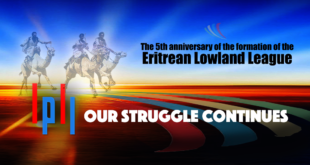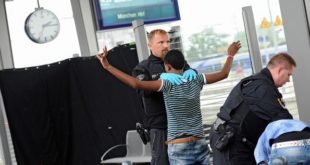Daniel and Kedijah’s story reveals everything wrong with the response by wealthy nations to record-high global displacement.
Daniel joined the line of people and followed the smugglers under cover of darkness to the sea. In the humid evening, he waited to board a boat docked off the coast of Libya. Over the past six years, he had slept in a refugee camp in Ethiopia, in an Israeli prison, in the sand and dirt of the Sahara desert. Tonight, he would not sleep.
Daniel was in the final stage of a seemingly impossible quest to reach Europe. After fleeing a brutal dictatorship in Eritrea, he’d sought safety and freedom from East Africa to the Middle East. (The names of the people in this story have been changed because they still have family in Eritrea.) At every stop along the way, the world’s response to the crisis of displacement failed him. Like the 343,000 other refugees and migrants who arrived in Italy and Greece via the Mediterranean last year, his story illuminates a system so broken that people risk their lives to escape it. These are the people against whom President Donald Trump barred the doors of the United States last week, and whom European nations have refused to welcome for years.
Daniel never imagined that he would become one of the 65.3 million displaced people worldwide. He was born in 1984 in Shire, Ethiopia, one of seven children. But his parents were Eritrean, and when Daniel was around 10, the family returned home. Eritrea had just gained its independence from Ethiopia, following a 30-year war between the two countries. Violence would continue to erupt over the next decade, but 1993 was a time of optimism in Eritrea. The country’s newly elected president, Isaias Afwerki, had led the military struggle for independence, and his ascension seemed to herald a brighter future.
In fact, from his new seat of power, Afwerki was slowly constructing one of the world’s most repressive dictatorships. Daniel, sheltered as a child by his large extended family and rural surroundings, first woke to the encroaching reality of Afwerki’s cruelty when he was 13 and his older brother, Tewelde, fell ill with liver complications. Tewelde, who had worked for the government for five years, was unable to get treatment in Eritrea, but a German friend offered to sponsor his care abroad. The Eritrean government denied Tewelde an exit visa; he died a few months later. “To see someone
–
Read more…The Nation
 ELL Eritrean Lowland League
ELL Eritrean Lowland League




